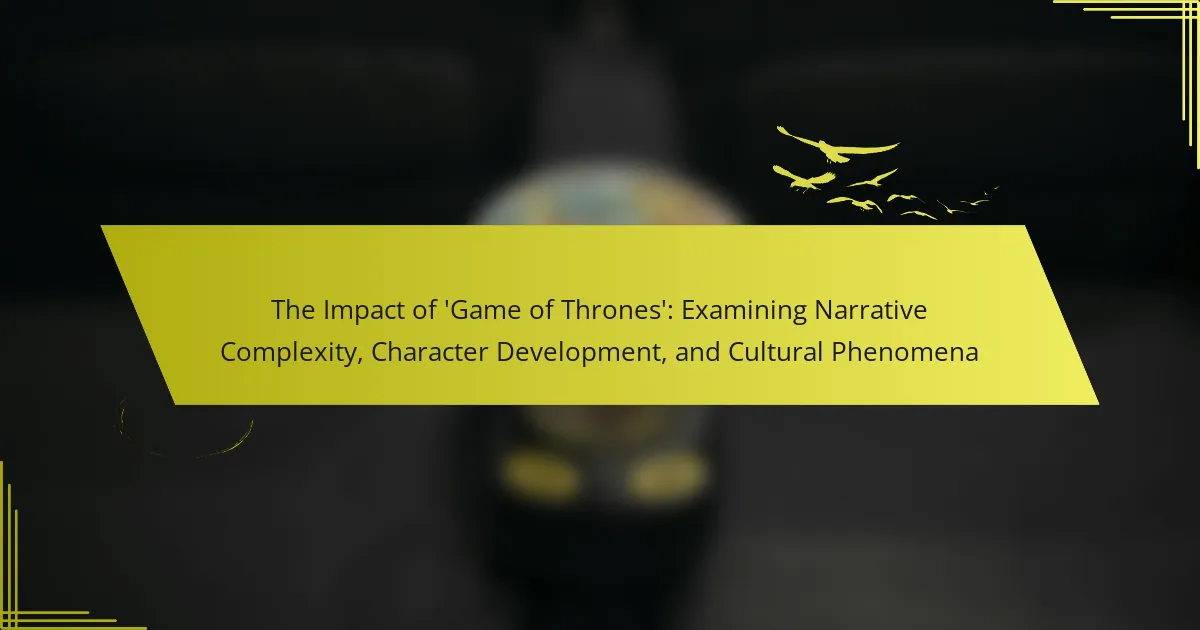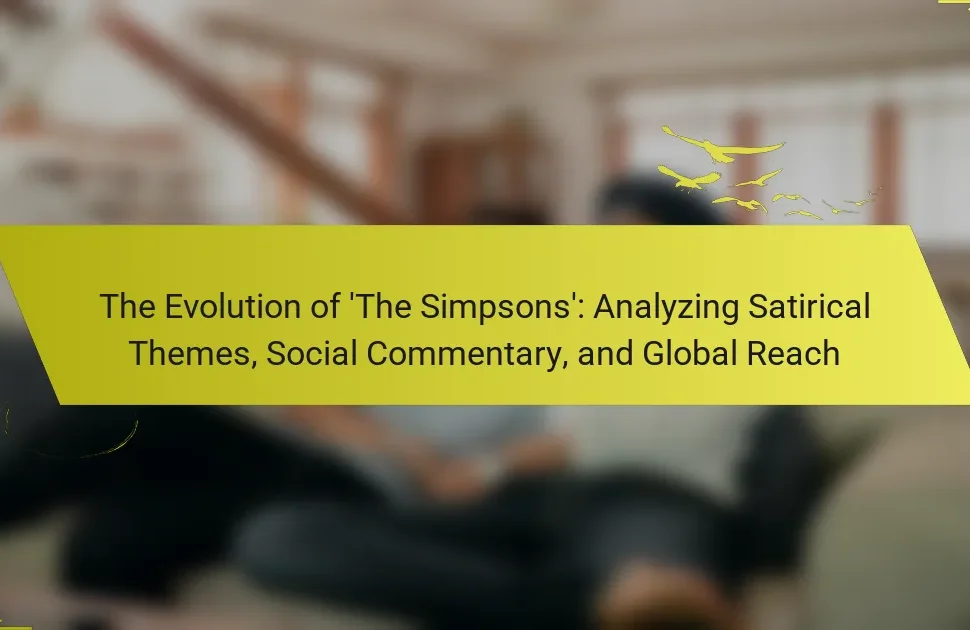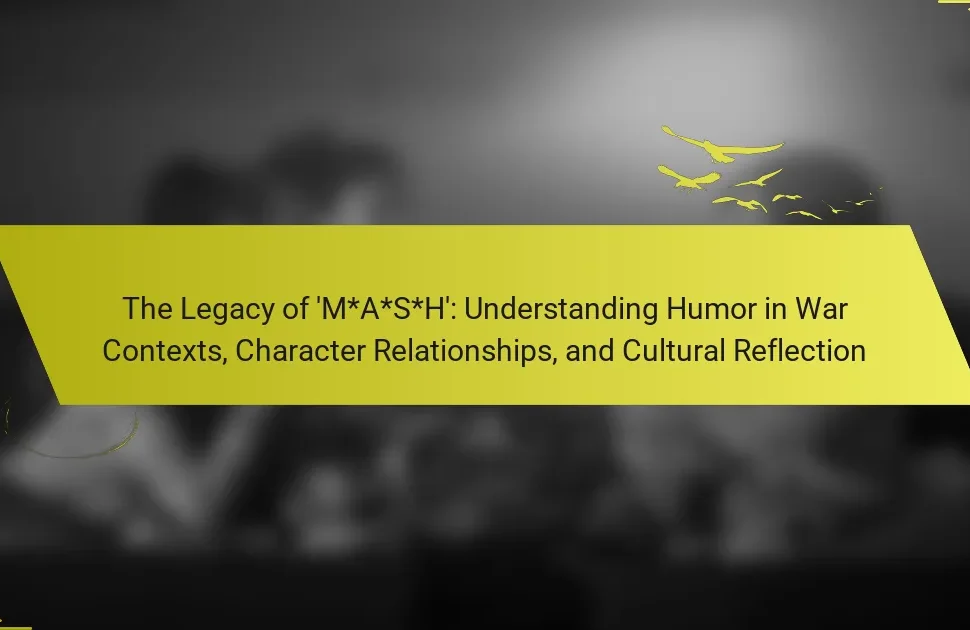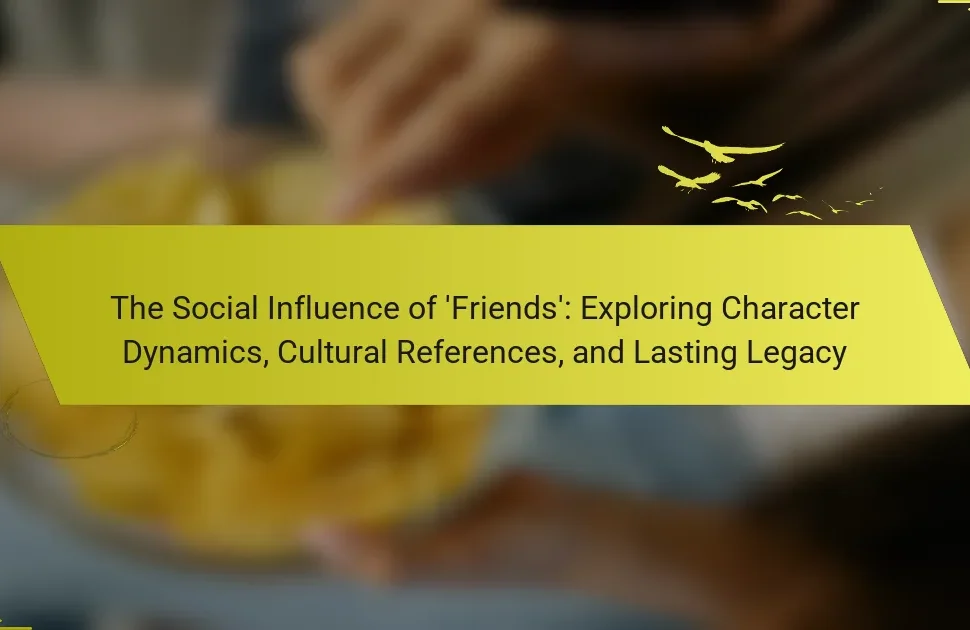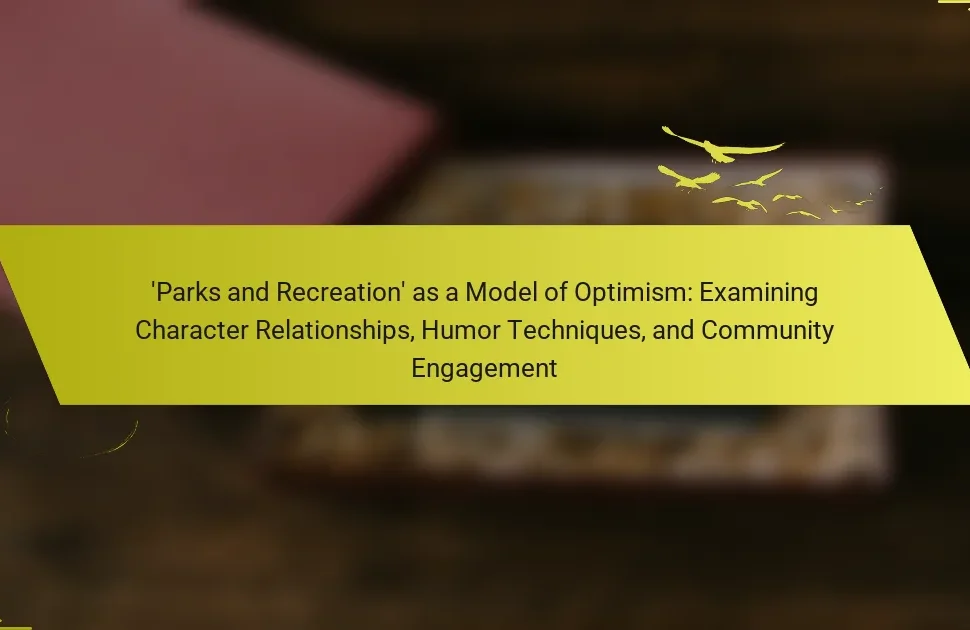‘Game of Thrones’ is a television series that has significantly impacted modern storytelling, particularly in the fantasy genre. The show is recognized for its high production values, intricate narrative complexity, and character development, which have reshaped audience expectations regarding plot depth and character arcs. It has popularized morally ambiguous characters and sparked discussions around themes such as power, betrayal, and loyalty. The series also influenced fan engagement through theories, merchandise, and conventions, while its critical acclaim is highlighted by numerous awards, including 59 Primetime Emmy Awards. Overall, ‘Game of Thrones’ has redefined serialized storytelling in mainstream media and contributed to a resurgence of interest in the fantasy genre.
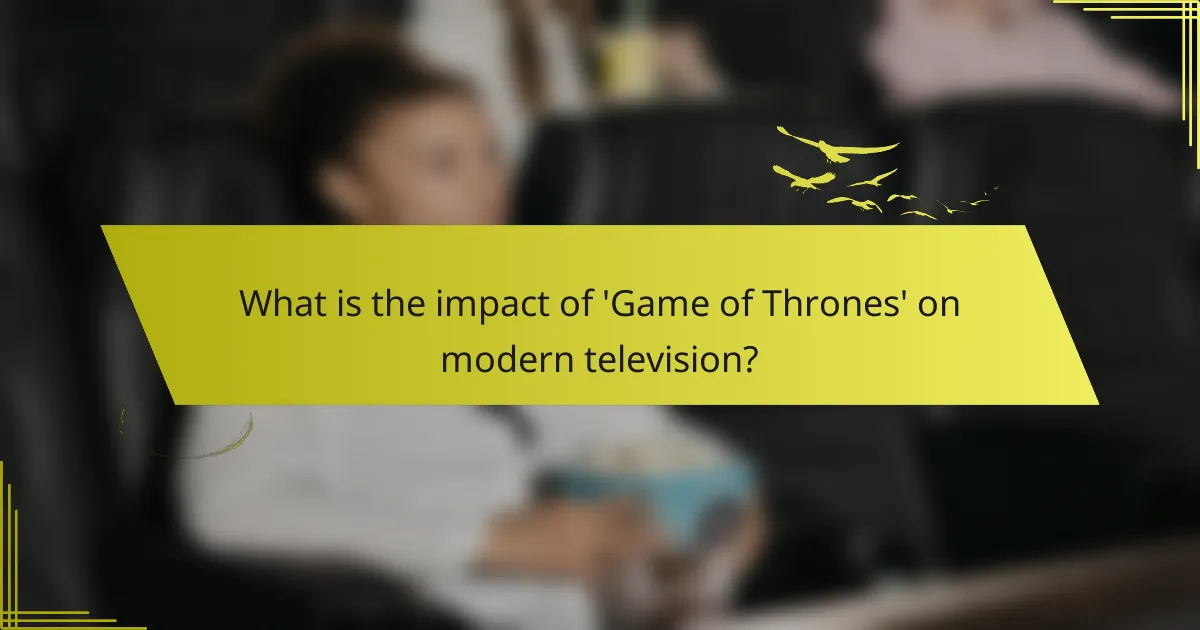
What is the impact of ‘Game of Thrones’ on modern television?
‘Game of Thrones’ significantly transformed modern television by elevating production values and narrative complexity. The series set new standards for visual effects, set design, and cinematography, influencing subsequent high-budget shows. Its intricate storytelling and character development reshaped audience expectations for plot depth and character arcs. The show’s willingness to subvert traditional storytelling tropes, including unexpected character deaths, challenged narrative conventions. It also sparked widespread cultural discussions, leading to a surge in fantasy genre popularity. The series garnered numerous awards, including 59 Primetime Emmy Awards, showcasing its critical acclaim. ‘Game of Thrones’ demonstrated the viability of serialized storytelling in mainstream media, paving the way for future epic dramas.
How has ‘Game of Thrones’ influenced narrative complexity in storytelling?
‘Game of Thrones’ has significantly influenced narrative complexity in storytelling through its intricate plotlines and character arcs. The series features multiple point-of-view characters, allowing diverse perspectives on events. This structure enhances depth and complexity, making the narrative more engaging. Additionally, ‘Game of Thrones’ employs unexpected plot twists and character deaths, challenging traditional storytelling conventions. The show intertwines political intrigue, personal motivations, and moral ambiguity, reflecting real-world complexities. Its success has inspired other series to adopt similar narrative techniques, pushing the boundaries of conventional storytelling. The impact is evident in shows like ‘Westworld’ and ‘The Witcher,’ which utilize complex narratives to captivate audiences.
What are the key elements of narrative complexity in ‘Game of Thrones’?
The key elements of narrative complexity in ‘Game of Thrones’ include multiple intertwining storylines, morally ambiguous characters, and intricate political dynamics. The series features a large ensemble cast, resulting in diverse perspectives and conflicts. Each character’s motivations and decisions contribute to the overarching plot, creating a rich tapestry of narratives. The unpredictable nature of the storyline, including major character deaths, keeps viewers engaged. Themes of power, betrayal, and loyalty are explored through complex relationships. Flashbacks and foreshadowing enhance the depth of the narrative. The show’s world-building includes detailed histories and lore, adding layers to the story. These elements collectively create a sophisticated narrative structure that captivates audiences.
How does the narrative structure of ‘Game of Thrones’ differ from traditional storytelling?
The narrative structure of ‘Game of Thrones’ differs from traditional storytelling by employing a non-linear approach and multiple perspectives. It features a large ensemble cast, allowing for diverse character arcs and plotlines. Traditional storytelling often follows a single protagonist or linear progression. In contrast, ‘Game of Thrones’ shifts focus between characters and locations, creating a complex web of interrelated stories. This structure enhances unpredictability and depth, as characters can face sudden changes in fortune. The series often subverts typical narrative expectations, such as killing key characters unexpectedly. This approach keeps viewers engaged and challenges conventional storytelling norms.
What role does character development play in ‘Game of Thrones’?
Character development plays a crucial role in ‘Game of Thrones’. It enhances the narrative complexity by showcasing the moral ambiguities of characters. Each character evolves through personal struggles and external conflicts. For example, characters like Jaime Lannister transition from perceived villains to more nuanced figures. This complexity engages viewers and provokes discussions about morality and power. The series illustrates the consequences of choices made by characters, affecting their arcs significantly. Additionally, character development reflects broader themes such as loyalty, betrayal, and the quest for power. This depth contributes to the show’s cultural impact, making it a subject of analysis and discussion.
How are main characters developed throughout the series?
Main characters in “Game of Thrones” are developed through complex arcs and interactions. Their growth is influenced by personal experiences and external conflicts. Each character faces moral dilemmas that shape their decisions. Relationships with other characters further enhance their depth. For instance, Jon Snow’s journey from a perceived outcast to a leader illustrates significant transformation. Daenerys Targaryen’s evolution from a timid girl to a powerful ruler showcases ambition and consequences. The series employs flashbacks and narrative shifts to reveal backstories. Character development is also reflected in their changing motivations and allegiances. Overall, the intricate storytelling fosters a rich exploration of character complexity.
What techniques are used to create complex character arcs in ‘Game of Thrones’?
‘Game of Thrones’ employs multiple techniques to create complex character arcs. These include moral ambiguity, character backstory, and dynamic relationships. Moral ambiguity allows characters to exhibit both virtuous and villainous traits. This complexity makes characters relatable and unpredictable. Character backstory provides depth and motivation for their actions. Detailed histories create empathy and understanding for their choices. Dynamic relationships evolve over time, influencing character development significantly. Characters often change in response to their interactions with others. Additionally, the use of foreshadowing hints at future developments, enhancing narrative tension. These techniques culminate in rich, multifaceted character arcs that captivate audiences.
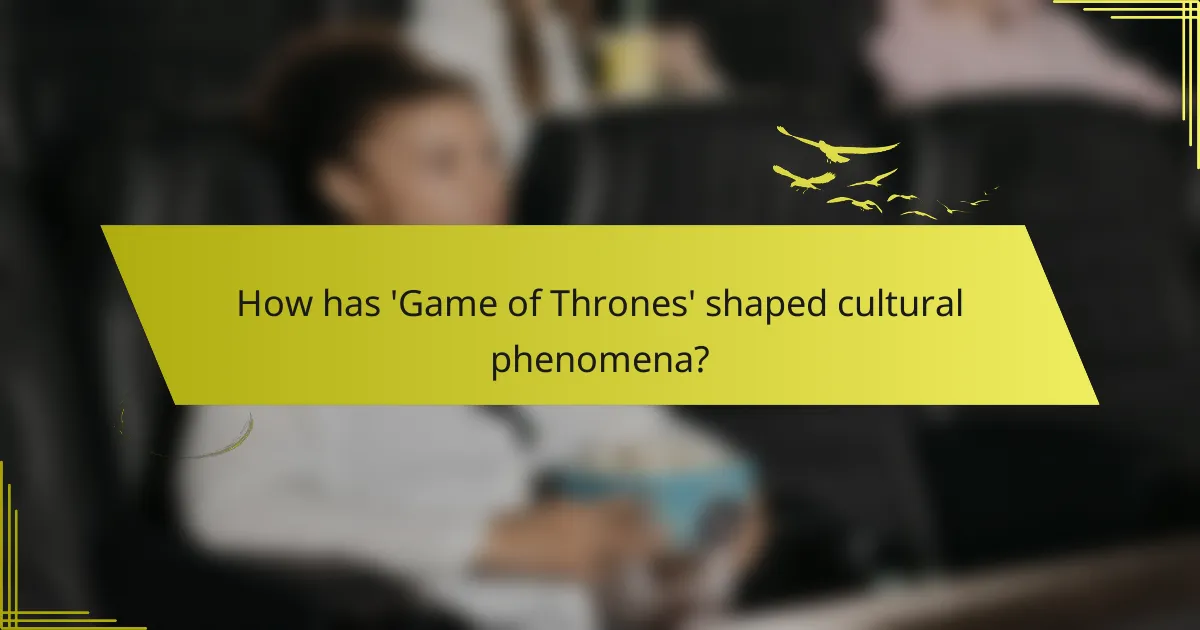
How has ‘Game of Thrones’ shaped cultural phenomena?
‘Game of Thrones’ has significantly shaped cultural phenomena through its influence on television storytelling and fan engagement. The series popularized complex narratives and morally ambiguous characters. It introduced a new standard for production quality in television. The show sparked widespread discussions about themes such as power, betrayal, and loyalty. It also inspired fan theories, merchandise, and conventions. The series’ finale generated intense debate and analysis, showcasing its cultural impact. Its success led to a resurgence in fantasy genre interest. Overall, ‘Game of Thrones’ redefined audience expectations and engagement with serialized storytelling.
What cultural conversations has ‘Game of Thrones’ sparked?
‘Game of Thrones’ has sparked numerous cultural conversations, particularly around themes of power, morality, and gender. The series provoked discussions on the representation of women in media. Characters like Daenerys Targaryen and Cersei Lannister challenged traditional gender roles. Additionally, the show ignited debates on the ethics of leadership and the consequences of ambition. Fans often analyze the complex moral dilemmas faced by characters. The portrayal of violence and its impact on storytelling has also been a significant topic. Furthermore, the series has influenced popular culture, inspiring parodies and fan theories. The phenomenon of “winter is coming” became a cultural catchphrase, symbolizing impending challenges. Overall, ‘Game of Thrones’ has left a lasting mark on contemporary discourse.
How does ‘Game of Thrones’ reflect contemporary societal issues?
‘Game of Thrones’ reflects contemporary societal issues through its exploration of power dynamics, gender roles, and moral ambiguity. The series portrays the ruthless pursuit of power, paralleling real-world political struggles. Characters like Cersei Lannister and Daenerys Targaryen challenge traditional gender norms, showcasing women’s roles in leadership. The show also highlights the consequences of war and the impact on civilians, mirroring current global conflicts. Additionally, themes of loyalty and betrayal resonate with modern societal relationships. The complex characters embody a spectrum of morality, prompting viewers to question ethical boundaries in their own lives. This narrative complexity allows audiences to engage with pressing societal issues in a reflective manner.
What has been the audience’s reaction to the themes presented in ‘Game of Thrones’?
The audience’s reaction to the themes presented in ‘Game of Thrones’ has been mixed. Many viewers praised the show’s exploration of power dynamics, morality, and the consequences of ambition. The complex characters and their moral ambiguities resonated with audiences. However, some fans expressed disappointment with the final season’s handling of these themes. Critics noted that the rushed conclusion undermined character development established earlier in the series. Overall, the themes sparked extensive discussion and debate among fans and critics alike. The show’s cultural impact is evident in the numerous analyses and forums dedicated to its narrative complexity.
How has ‘Game of Thrones’ impacted the fantasy genre?
‘Game of Thrones’ has significantly impacted the fantasy genre by introducing complex narratives and morally ambiguous characters. The series elevated audience expectations for character development and plot intricacy. It showcased the potential for fantasy to tackle real-world issues, such as power dynamics and betrayal. The show also popularized darker themes and a more realistic portrayal of violence in fantasy storytelling. Its success led to a surge in adaptations of fantasy literature. The series’ influence is evident in subsequent works that prioritize depth and character complexity. Additionally, ‘Game of Thrones’ expanded the global audience for fantasy, leading to increased interest in the genre overall.
What innovations in fantasy storytelling can be attributed to ‘Game of Thrones’?
‘Game of Thrones’ introduced several innovations in fantasy storytelling. It popularized morally ambiguous characters, challenging traditional hero-villain dichotomies. Complex political intrigue became a hallmark, with intricate plots and shifting allegiances. The series also embraced unexpected character deaths, raising stakes and enhancing realism. Its non-linear narrative structure allowed for multiple perspectives, deepening viewer engagement. Additionally, the show utilized high production values, elevating the visual storytelling of the fantasy genre. These elements collectively transformed audience expectations and broadened the scope of fantasy narratives.
How has ‘Game of Thrones’ influenced other media and franchises?
‘Game of Thrones’ has significantly influenced other media and franchises through its complex storytelling and character development. The series popularized intricate plots with morally ambiguous characters. This narrative style can be seen in shows like ‘The Witcher’ and ‘Vikings’. Additionally, ‘Game of Thrones’ set new standards for production quality in television. This led to increased budgets and cinematic techniques in subsequent series. The franchise also impacted video games, inspiring titles like ‘A Game of Thrones: Genesis’. Merchandise and spin-off series further demonstrate its cultural reach. The show’s success has prompted networks to invest in high-fantasy adaptations, reshaping the television landscape.
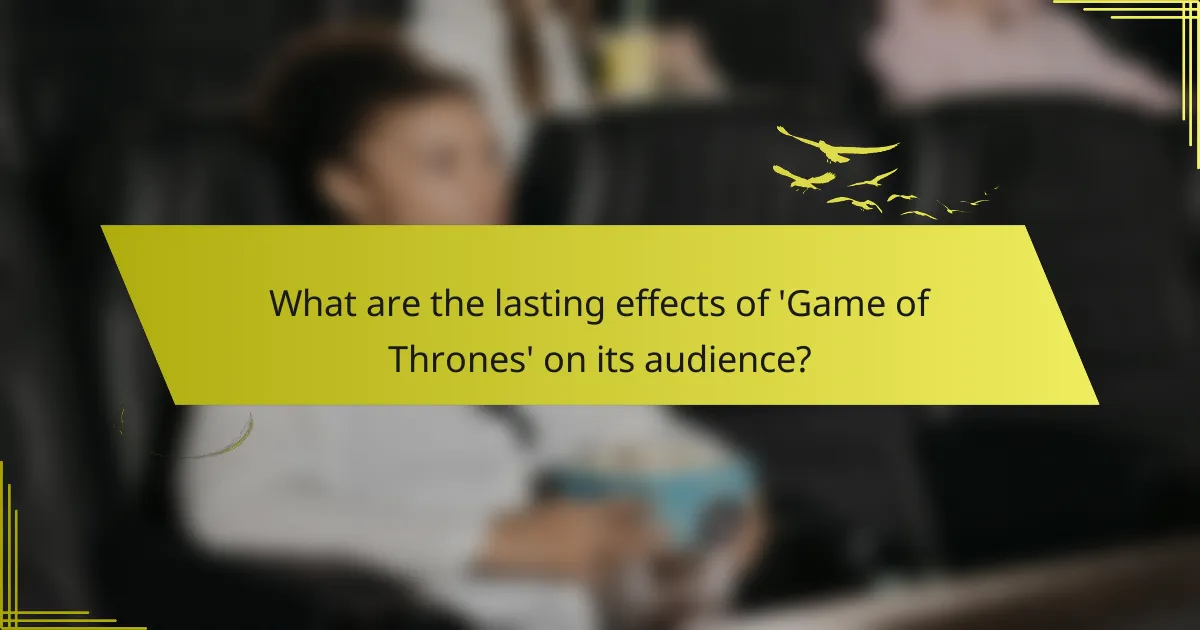
What are the lasting effects of ‘Game of Thrones’ on its audience?
‘Game of Thrones’ has significantly influenced its audience’s perception of storytelling. The series introduced complex characters and moral ambiguity, challenging traditional hero-villain dichotomies. This complexity led viewers to engage in deeper discussions about character motivations and ethical dilemmas. Additionally, the show’s unpredictable plot twists fostered a culture of speculation and fan theories. Viewers became accustomed to narratives where no character was safe, altering expectations in future series. The cultural impact is evident in the rise of similar fantasy shows that adopt its narrative style. Furthermore, ‘Game of Thrones’ has sparked interest in the original book series, expanding its audience base. Overall, the series has reshaped audience engagement with narrative depth and character analysis.
How can viewers engage with the themes of ‘Game of Thrones’ in their own lives?
Viewers can engage with the themes of ‘Game of Thrones’ by reflecting on power dynamics in their own lives. The series showcases the struggle for power and its consequences. Individuals can analyze their own relationships and workplace hierarchies. They can also explore themes of loyalty and betrayal, which are prevalent throughout the narrative. Understanding these themes can enhance personal decision-making. Additionally, viewers may find inspiration in characters who demonstrate resilience and adaptability. This can motivate them to face their own challenges. By discussing the series with others, viewers can gain diverse perspectives on its themes. Engaging in community discussions can deepen their understanding of the show’s impact.
What lessons can be learned from the character journeys in ‘Game of Thrones’?
Character journeys in ‘Game of Thrones’ teach several lessons about morality, power, and human nature. Characters often face moral dilemmas that highlight the complexity of right and wrong. For instance, Ned Stark’s commitment to honor leads to his downfall, illustrating the dangers of rigidity in ethical beliefs. Conversely, characters like Tyrion Lannister show that intelligence and adaptability can be more valuable than brute strength.
The series also emphasizes the corrupting influence of power. Characters who seek power, such as Cersei Lannister and Daenerys Targaryen, often suffer tragic consequences. Their arcs reveal that the pursuit of power can lead to isolation and destruction.
Additionally, the importance of loyalty and betrayal is a recurring theme. Relationships are tested throughout the series, demonstrating that trust can be both a strength and a vulnerability.
Ultimately, ‘Game of Thrones’ illustrates that human motivations are complex. Characters are driven by a mix of ambition, love, and fear, reflecting real-world human behavior. These lessons contribute to the show’s lasting impact on audiences and its exploration of narrative complexity.
How can fans contribute to discussions about the series and its impact?
Fans can contribute to discussions about the series and its impact by sharing their insights and interpretations. They can engage in online forums and social media platforms dedicated to ‘Game of Thrones’. This interaction fosters a diverse exchange of ideas. Fans can analyze character development and narrative complexity through blog posts or video essays. Their perspectives can highlight cultural phenomena related to the series. Participation in fan conventions and panels allows for direct dialogue with creators and scholars. Collaborative fan projects, such as podcasts, can deepen the conversation. Overall, fans play a crucial role in shaping the ongoing discourse surrounding the series.
What are some best practices for analyzing ‘Game of Thrones’?
To analyze ‘Game of Thrones’ effectively, focus on narrative structure, character arcs, and thematic elements. Examine the intricate plotlines and how they interconnect throughout the series. Assess character development by tracking transformations and motivations across seasons. Analyze the show’s cultural impact by considering audience reception and critical reviews. Utilize scholarly articles on narrative complexity and character analysis for deeper insights. Reference specific episodes to illustrate points, such as pivotal moments that define character choices. Engage with fan theories to explore alternative interpretations of the narrative.
The main entity of the article is ‘Game of Thrones’, a television series that has profoundly impacted modern storytelling and culture. The article examines the show’s influence on narrative complexity, character development, and cultural phenomena, highlighting its elevation of production values and intricate storytelling techniques. Key elements discussed include the series’ non-linear narrative structure, moral ambiguity in character arcs, and the cultural conversations it has sparked regarding power dynamics and representation. Additionally, the article explores how ‘Game of Thrones’ has reshaped audience expectations and inspired subsequent media within the fantasy genre.
